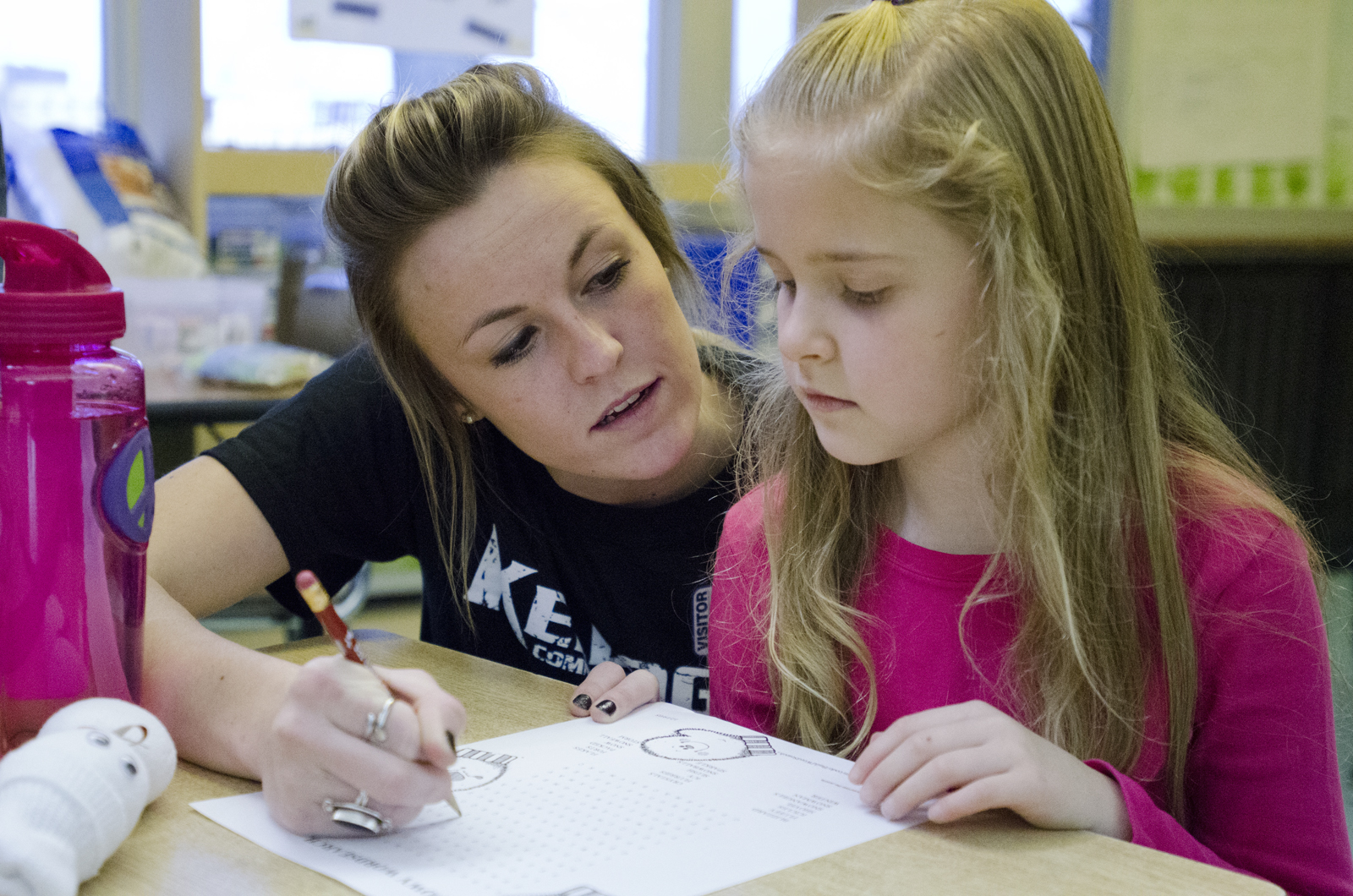Registration for the Summer 2018 semester is open now! For information about signing up for summer classes, visit www.kellogg.edu/registration. To apply to KCC online for free, visit www.kellogg.edu/step1.
Interested in studying education? Here’s a list of several early childhood education (ECE) classes offered at Kellogg Community College during the Summer 2018 semester. For a complete list of Summer 2018 semester classes offered at KCC, visit www.kellogg.edu and click on “Class Schedules” in the top menu to search for sections.
ECE 209: Fundamentals of Early Childhood Education (3 Credits)
This course introduces students to various theories and philosophies of child care, developmentally-appropriate practice and the CDA functional areas. The critical periods of growth and development for children ages newborn to 8 are emphasized.
ECE 210: Child Growth & Development (3 Credits)
This course examines the social, emotional, cognitive, physical and language development of children ages newborn through adolescence, including the genetic and prenatal influences on the child, the importance of play and consistent routines, the role of the family and how nutrition and health issues affect a child’s development. This course is based on NAEYC standards of child development practices. Students acquire skills in observing, recording and interpreting child behavior. Each student will be required to spend four to six clock hours completing field experience outside of scheduled class times, which may include working with young children, families and early childhood professionals.
ECE 214: Appropriate Assessment With Young Children (3 Credits)
Students explore developmentally-appropriate assessment and observation techniques for children ages newborn to 8 based on NAEYC standards. Both standardized and non-standardized assessment tests are reviewed. Advanced behavior management, observation and recording strategies are explored. Students learn about the Individual Education Plan (IEP) and the Individual Family Service Plan (IFSP) processes. Each student is required to spend four to six clock hours completing field experience outside of scheduled class times, which may include working with young children, families and early childhood professionals.
ECE 215: Positive Child Guidance (3 Credits)
This course examines theoretical approaches to guidance, positive intervention strategies, observation techniques and group management skills. Emphasis is on the positive development of a child’s self-esteem, ages newborn to 8, and positive communications with families. Children’s social relationships are examined, as are cultural influences. This course is based on NAEYC standards of child development practices. Each student may be required to spend four to six clock hours completing field experience outside of scheduled class times, which may include working with young children, families and early childhood professionals.
ECE 221: Early Childhood Internship (3 Credits)
Students will need to successfully pass a criminal background check and a State of Michigan Department of Human Services Child Abuse and Neglect Registry (CANR), according to College and department policy. Students work in early childhood settings to gain professional work experience in the application of competencies based on the NAEYC standards for associate degree programs. Students must be able to meet site requirements, which may include a health physical and a TB check. Students must complete a minimum of 275 clock hours of work experience and must file and receive an approved internship application with the Early Childhood Education office prior to registering.
ECE 224: Introduction to Early Childhood Education (3 Credits)
This course introduces students to developmentally-appropriate, high-quality child care programming for children ages birth to 8. Students will complete routines, scheduling and activities that encourage children’s healthy growth and development. Topics include the State of Michigan Child Care Licensing Regulations, career opportunities in childcare and types of child care programs. This course is based on NAEYC standards of child development practices. A four clock hour observation outside of course in an approved setting is required.
ECE 233: Early Childhood Environments (3 Credits)
This course provides hands-on experience in selecting, preparing and presenting appropriate curriculum for children in licensed preschool and before-and-after school care settings. Specific areas of study include the development of appropriate learning experiences using music, art, dramatic play, outdoor play, fine and gross motor skills and literacy. Students learn how to plan appropriate routines. Students are required to complete 16 hours of field experience outside of scheduled class times.
ECE 240: Child Care Administration (3 Credits)
This course is based on NAEYC standards for administration of child care centers. Students examine the child care administrator’s role in directing successful early childhood centers. Topics include safety, child care licensing laws, sound health and nutrition practices, business practices, communication skills, professionalism, personnel management, policy development, accreditation standards and ethical decision making. Each student will be required to spend one to two clock hours completing field experience outside of scheduled class times, which may include working with young children, families and early childhood professionals.
ECE 261: Topics in Early Childhood 1 (1 Credit)
This course broadens student knowledge through selected topics and issues pertaining to early childhood. Topics may include administration, nutrition, activities or legal and ethical issues. Each student may be required to spend one to three clock hours observing and working with young children outside of scheduled class times.
ECE 263: Topics in Early Childhood 3 (3 Credits)
This course broadens student knowledge through selected topics and issues pertaining to early childhood. Topics may include administration, nutrition, activities or legal and ethical issues. Each student may be required to spend one to three clock hours observing and working with young children outside of scheduled class times.
The first Summer 2018 classes start May 14, and the semester ends Aug. 8. For information about signing up for summer classes, visit www.kellogg.edu/registration. For more information about studying early childhood education at KCC, visit www.kellogg.edu/early-childhood.
